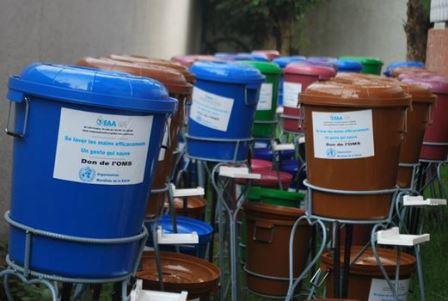Coverage of Ebola in West Africa

There is a cliché in the news business which says, ‘if it bleeds, it leads.’ Its a reporter’s frame of mind when dealing with big news stories and events of the moment.
By this maxim, there is a tendency for crises, and disaster-like events to garner much attention to the detriment of everything else. So, we have seen how much resources, money, and personnel, media organizations have poured into the Ebola coverage. To a certain extent, this is good news. We need to know what is happening so everyone is prepared.
But there is concern that some of the information may not be trustworthy. How best to report about Ebola is a new challenge for journalists. In Ebola Coverage: Informing Vs. Overhyping CNN’s Reliable Sources examines the subject.
“But there is concern that fear and misinformation is making the crisis worse,” says Reliable Sources host, Brian Stelter.
In the rush to report the news, well-meaning reporters sometimes may oversimplify or perhaps exaggerate reports about things that are taking place. That may be the case with reports about the crisis that has gripped Liberia, Guinea, Sierra Leone, and Nigeria.
Reporting about Ebola also comes with a dread factor.
Rob Stein, a reporter with National Public Radio (NPR) says, ‘The Ebola outbreak has set off an alarm around the world. Public health leaders say the intense concern is appropriate, given the unprecedented size of the outbreak and the deadliness of the virus.’ He adds some caveats to the reporting by U.S. media
“But experts say the outbreak has also produced a lot of unfounded fears. Even just the word Ebola is kind of terrifying,” he says in this August 22 report for NPR News.
Stein thinks Hollywood has a lot to do with the dread factor, based on plenty of movies that border on the subject. “There are huge differences between those movies and what’s happening right now with Ebola.”
‘Now, no one is saying Ebola isn’t a dangerous virus. We need to take it very seriously. But if people start to panic, it might trigger so much turmoil that it starts to take a toll of its own. It might also divert attention from the terrible human suffering already happening in West Africa — and the efforts to stop it.’
In Ebola. A Bit of Perspective, former CNN reporter Gina London thinks ‘there is a tendency for the media to oversimplify. In spite of our 24-hour-news-cycle, there is somehow not enough time to provide deep context or broader perspective on a given story. Instead, what we get are dramatic headlines designed to captivate viewers – and the notion of a virus-like Ebola is certainly one that lends itself to fear.’
Writing on her blog, from Nigeria, London gives a statistical breakdown, by country, of the reported cases by the World Health Organization (WHO).
She cautions, “that this illness is a very serious thing. As the news continues to say, this is the deadliest Ebola outbreak in recorded history. Liberia is particularly struggling.’
